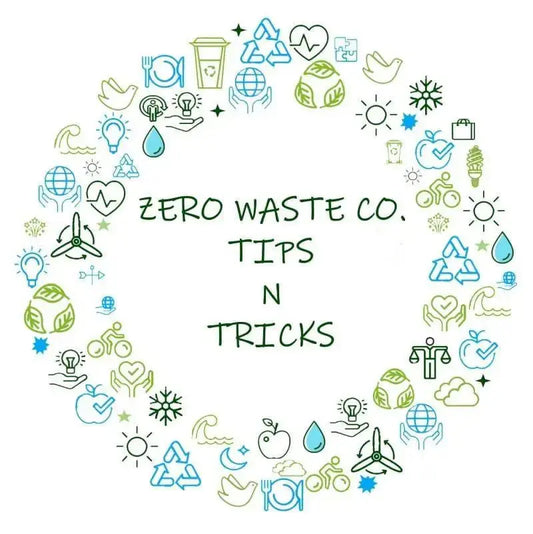Introduction
As we step into 2025, a notable shift in consumer behavior is becoming increasingly evident: the rising demand for sustainable products. Individuals and companies alike are becoming more conscious of their environmental impact, leading to a surge in eco-friendly options. This article explores the reasons behind this trend, its implications for various industries, and how consumers can make informed choices.
Understanding the Shift Towards Sustainability
The shift towards sustainable products is not merely a trend; it reflects a fundamental change in consumer values. Here are some key factors driving this change:
-
Increased Awareness: With more information available on climate change and environmental issues, consumers are more aware of the impact of their purchases. Documentaries, social media campaigns, and educational resources have made sustainability a hot topic.
-
Health Consciousness: Many eco-friendly products are also healthier options, free from harmful chemicals. Consumers are increasingly interested in the ingredients used in their products, preferring natural and organic materials.
-
Social Responsibility: Consumers feel a sense of responsibility towards future generations, prompting them to make sustainable choices. This generational shift is particularly evident among Millennials and Gen Z, who prioritize sustainability in their purchasing decisions.
-
Brand Transparency: Companies that are transparent about their sourcing and production processes attract more eco-conscious consumers. Shoppers want to know where their products come from and how they are made.
-
Influence of Social Media: Platforms like Instagram and TikTok have amplified the voices of sustainability advocates, making eco-friendly lifestyles more desirable and accessible to the public.
The Impact of Sustainable Products on Consumer Choices
As consumers opt for eco-friendly options, several changes are evident in their purchasing behavior:
-
Preference for Green Brands: Brands that prioritize sustainability often see increased loyalty from consumers. Shoppers are more likely to return to brands that align with their values.
-
Willingness to Pay More: Many consumers are willing to pay a premium for products that are environmentally friendly. Reports indicate that a significant percentage of consumers would choose higher-priced sustainable options over cheaper, non-sustainable alternatives.
-
Demand for Transparency: Shoppers are increasingly seeking information about product origins and production practices. This has led to brands adopting clearer labeling and providing detailed information about their sustainability practices.
-
Community Engagement: Consumers are more inclined to support local businesses that focus on sustainability, fostering a sense of community and reducing carbon footprints.
Key Sectors Experiencing Growth
Several sectors are notably benefiting from the shift towards sustainable products:
-
Fashion: Sustainable fashion brands are gaining traction as consumers look for ethical clothing options. The rise of second-hand shopping and rental fashion services has also contributed to this trend. Brands like Everlane and Reformation are leading the way in transparency and sustainable practices.
-
Food and Beverage: Organic and locally sourced food products are in higher demand than ever. Consumers are increasingly interested in not only what they eat but also how it's produced. Farm-to-table restaurants and organic grocery stores are thriving.
-
Beauty and Personal Care: Eco-friendly beauty products are appealing to health-conscious consumers. Brands are reformulating products to eliminate harmful chemicals and plastics, using sustainable packaging instead.
-
Home Goods: Sustainable home products, from cleaning supplies to furniture, are increasingly popular. Companies are innovating with biodegradable materials and sustainable sourcing practices to meet consumer demands.
-
Technology: The electronics sector is also experiencing a shift, with more consumers seeking energy-efficient devices and eco-friendly materials in their tech products.
How to Choose Sustainable Products
For consumers looking to make eco-friendly choices, understanding how to identify sustainable products is crucial. Here are some tips:
-
Research Brands: Look for brands that emphasize sustainability in their mission and practices. Check their websites for sustainability reports and certifications.
-
Look for Labels: Certifications like USDA Organic, Fair Trade, and Energy Star can help identify products that adhere to sustainable practices.
-
Consider Packaging: Choose products with minimal and recyclable packaging. Brands that use biodegradable materials should be prioritized.
-
Support Local Businesses: Local products often have a lower carbon footprint due to reduced transportation needs.
-
Educate Yourself: Stay informed about sustainability issues and trends to make more conscious decisions.
Challenges in the Sustainable Product Market
While the demand for sustainable products is rising, several challenges remain in the market:
-
Price Barrier: Sustainable products can often be more expensive to produce, leading to higher prices that may deter some consumers.
-
Greenwashing: Some companies may falsely claim to be sustainable to attract eco-conscious consumers. It is essential for consumers to be vigilant and do their research.
-
Limited Availability: In some regions, access to sustainable products can be limited, making it difficult for consumers to make eco-friendly choices.
Conclusion
As we move further into 2024, it is clear that the demand for sustainable products will continue to rise. This shift not only reflects changing consumer values but also encourages businesses to adopt more sustainable practices. By prioritizing eco-friendly options, consumers are not only making a positive impact on the environment but also pushing industries towards a more sustainable future. Embracing sustainability is not just a personal choice; it is a collective movement that can lead to significant change. Together, we can contribute to a healthier planet for generations to come.












0 comments